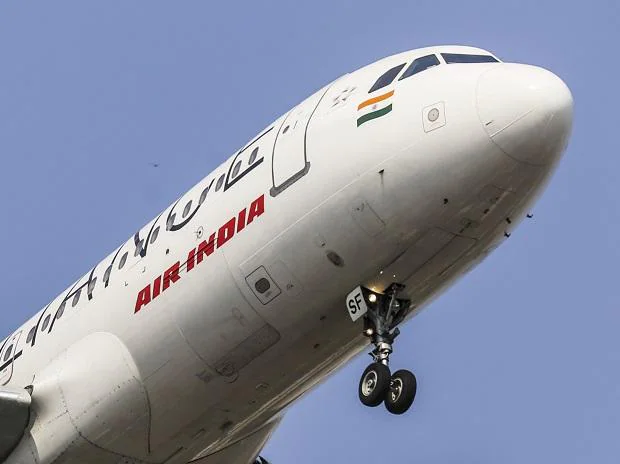[ad_1]
Civil aviation regulator DGCA on Tuesday imposed a fine of Rs 10 lakh on Tata group-owned Air India for denying boarding to passengers who held a valid ticket.
DGCA’s spot checks found that the airline does not have a policy on denied boarding and is not paying any compensation to the passengers.
“After going through submissions of the airline, as part of enforcement action, the competent authority has levied a penalty of Rs 10 lakh. In addition, the airline has been advised to immediately put the systems in place to resolve the issue, failing which further action shall be taken by DGCA,” the regulator said in a statement.
ALSO READ – DGCA fines SpiceJet Rs 10 lakh for training pilots on faulty simulator
The action came following numerous reports of flyers being denied boarding by several airlines despite having valid tickets and presenting on time. Despite guidelines on the same being in place, certain airlines were not following them, the DGCA said after conducting a series of checks at Bengaluru, Hyderabad, and Delhi.
Last month, the regulator warned airlines to give compensation and facilities to passengers affected by such denial of boarding. It said it would impose financial penalties on airlines that fail to do so.
As per DGCA regulations issued in 2010, when the number of passengers who have tickets for a flight and report for boarding at the airport on time is higher than the number of seats on the flight, the airline must first ask for volunteers to give up their seats in exchange for certain benefits.
In case the number of volunteers is insufficient, the airline does not need to compensate passengers who have been denied boarding, provided they are given a ticket on an alternative flight departing within one hour of the original flight’s departure.
Passengers who are denied boarding and can’t be provided with a ticket on an alternative flight departing within one hour of the original flight’s departure need to be compensated, as per DGCA rules.
The airline has to give an amount equal to 200 per cent of the basic fare plus fuel charges in case the alternative flight is scheduled to depart within 24 hours of the original flight’s departure. The compensation increases to 400 per cent of the basic fare plus fuel charges if the alternative flight is scheduled to depart more than 24 hours after the original flight’s departure, as per the rules.
 Dear Reader,
Dear Reader,
Business Standard has always strived hard to provide up-to-date information and commentary on developments that are of interest to you and have wider political and economic implications for the country and the world. Your encouragement and constant feedback on how to improve our offering have only made our resolve and commitment to these ideals stronger. Even during these difficult times arising out of Covid-19, we continue to remain committed to keeping you informed and updated with credible news, authoritative views and incisive commentary on topical issues of relevance.
We, however, have a request.
As we battle the economic impact of the pandemic, we need your support even more, so that we can continue to offer you more quality content. Our subscription model has seen an encouraging response from many of you, who have subscribed to our online content. More subscription to our online content can only help us achieve the goals of offering you even better and more relevant content. We believe in free, fair and credible journalism. Your support through more subscriptions can help us practise the journalism to which we are committed.
Support quality journalism and subscribe to Business Standard.
Digital Editor
[ad_2]
Source link

 Dear Reader,
Dear Reader,